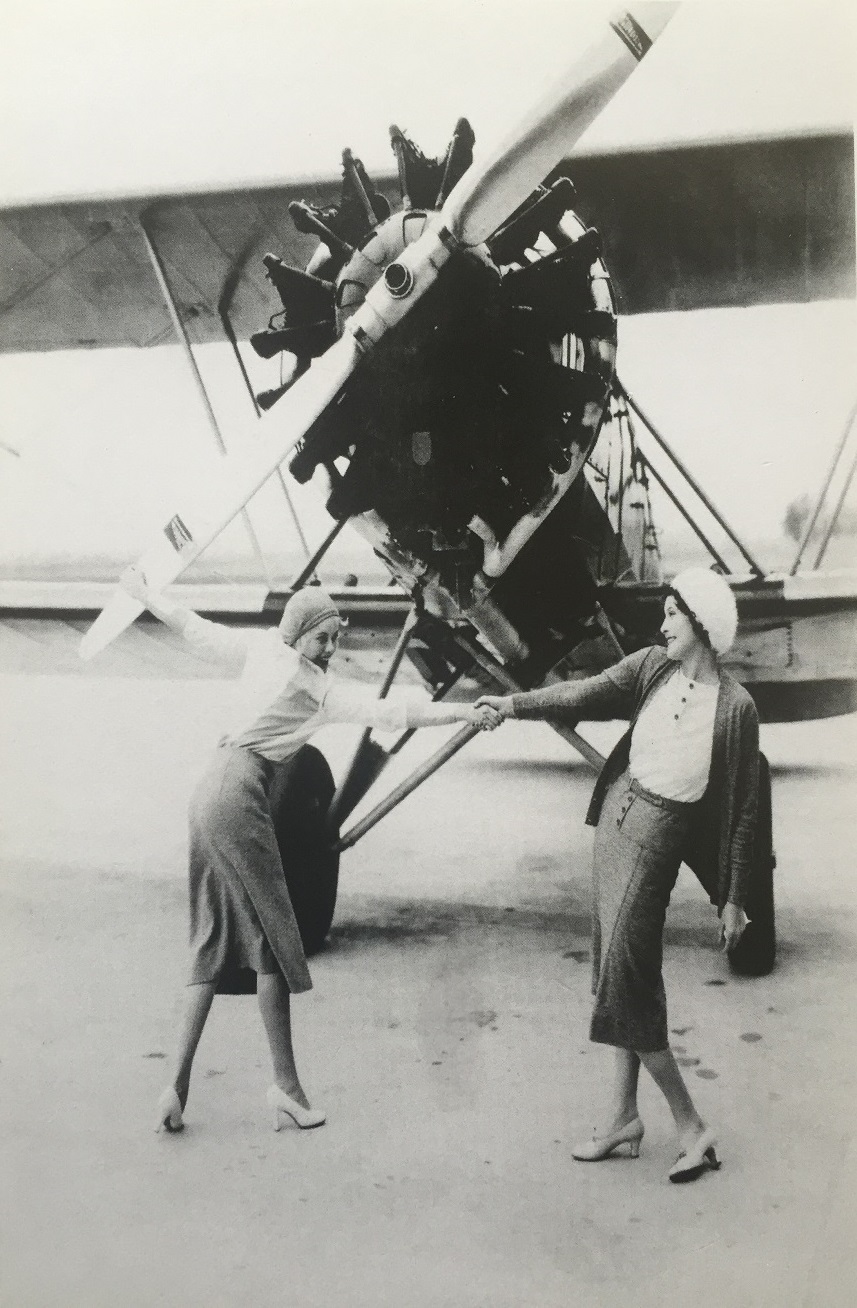“But still the Voice sounds and searches. The order and life of the world depend upon that Voice, but men are mostly too busy or too stubborn to give attention.” (A.W. Tozer, The Pursuit of God, p. 74).
In 2009, two veteran pilots, having overshot their destination in a very public way, had their licenses revoked by the FAA and were fired by their airline. The pilots admit to becoming distracted enroute – losing communication with air traffic control…too busy…to give attention. Having relinquished control of their aircraft to the automatic pilot, with their attention turned elsewhere, they gave no apparent thought to the condition of their aircraft, its position, or the 144 passengers in their trust. Many pilots, including myself, find it inconceivable that such experienced airmen could have flown for 91 minutes – an eternally long period of operation for a jet aircraft – without “checking in” (pilot lingo for contacting the controller).
Prolonged ‘radio silence’ can actually be quite LOUD – even abnormal – to the seasoned pilot who should instinctively be attuned to a void in communication. Traveling at over 500 miles per hour, traversing multiple airspace sectors without re-tuning their radios, eventually this crew was unable to hear the air traffic controller’s voice sounding and searching for them. The order and life of the world – at 37,000 feet – depends upon that voice – the Controller – providing safety, carefully guiding an aircraft toward its destination.
Whether you turn to the right or to the left, your ears will hear a voice behind you, saying, “This is the way; walk in it. (Isaiah 30:21)
What’s Really at Stake…
US Airways Captain Chesley Sullenberger, testifying before the NTSB about his heroic, 2009 Hudson River landing stated: “I think one of the many challenges of our profession is that it’s become so ultrasafe… it’s sometimes easy to forget what’s really at stake. One of the challenges, I think, is to remain alert and vigilant and prepared.”
The same can be said of our flight through life…too easily forgetting what is at stake, we lumber on, unaware, ignorant of the danger. The prudent see danger and take refuge, but the simple keep going and pay the penalty. (Prov 22:3, NIV)
How often do we put our life on autopilot and become distracted, oblivious to our own position and direction – having tuned out the Voice in control? While God – our controlling authority as Christians – may not revoke our “license,” if we don’t take heed to His warnings (throughout the Bible), we’ll lose situational awareness. Constant vigilance must be maintained lest we drift away or deviate from the course upon which He directs us. A man’s heart plans his ways, but the Lord directs His steps. (Prov 16:9)
Our world offers endless opportunities through which to engage our focus and tune out God. Whether passive, or active – it’s always a choice. We put our minds in a holding pattern with television, music or internet; medicate or numb our pain with alcohol, food, or drugs; become workaholics, or obsessed with hobbies, sports, etc. Constant are the temptations that seek to distract, divert attention and become idols; to cause us to stumble or crash. Whatever the source…no one can serve two masters… (Mat 6:24a).
The Safety Briefing…
It is not an understatement to say that, when we engage our inner autopilot and ease up on the yoke – we effectively cede control to some other device – or vice. In so doing, we give the devil a foothold (Eph 4:27, NIV) – and he will request an upgrade! Far from reassuring to passengers, it is not uncommon for a pilot – upon reaching cruise altitude – to engage the autopilot and recline his seat; to sit back and relax: “Ladies and gentlemen, this is your Captain speaking…may I have your attention please! Keep your minds in a fully upright position, guard your hearts, buckle up-secure in your faith; ensuring that you are attuned to Him at all times – obeying His commands!”
“…Take heed to yourselves, lest your hearts be weighed down with carousing, drunkenness, and cares of this life…watch therefore, and pray always… (Luke 21:34-36a)
Watching and Waiting…(and Warning)
In the Garden of Gethsemane, twice Jesus cautioned the Apostles to watch, and to pray – only to find them sleeping – twice! To Peter, He said, “What! Could you not watch with Me one hour? Watch and pray, lest you enter into temptation. The spirit indeed is willing, but the flesh is weak.” (Mat 26:40b-41)
Modern jet aircraft can remain aloft over thousands of miles, through multiple time zones, transporting passengers around the world. Rather than manually “flying,” however, pilots spend a lot time watching and waiting: ‘hmmm...the beef or the chicken?’ At cruise altitude, onboard computers steer the aircraft along a programmed path and maintain it’s mechanical systems, while pilots are as watchmen, monitoring progress: ‘I should pass on the dessert cart…you say it comes a la mode?’ While such automation generally enhances safety, especially in high-workload phases of flight, it also contributes to complacenzzzzz: ‘…this layover has those “heavenly” bedzz…’ The mind is prone to wander; boredom and fatigue can easily set in – among the best of airmen, even the Apostles. We all must acknowledge our vulnerability for, indeed, the flesh is weak.
Therefore humble yourselves under the mighty hand of God, that He may exalt you in due time, casting all your care upon Him, for He cares for you. Be sober, be vigilant; because your adversary the devil walks about like a roaring lion, seeking whom he may devour. (1 Pet 5:6-8)
Safeguards…
Vigilance is defined as being “keenly watchful; wary: as a vigilant sentry. Ever awake and alert: sleeplessly watchful” (dictionary.com). Sober vigilance is vital to the safety and integrity of any operation, maintaining a focus that is purposed, diligent and constant. Elevated awareness comes through scrutiny and examination; scanning the instruments and cross-checking the indications.
Crews are encouraged to share information, working together as members of a body, to respectfully challenge and help one another:
Two are better than one, because they have a good reward for their labor. For if they fall, one will lift up his companion. But woe to him who is alone when he falls, for he has no one to help him up. (Ecc 4:9-10)
Accountability with like minded people is essential. As Christians, we cross-check ourselves against the standard of Christ, as Paul said: Imitate me, just as I also imitate Christ. (1 Cor 11:1) Pilots are taught Crew Resource Management (CRM), which is the evaluation and use – the management – of all available resources with a constant mind toward enhancing safety. So too, as Christians, we must use the resources God has provided, in particular, His word in the Bible and discernment through the Holy Spirit, ever-sharpening our qualifications (1 Cor 9:27). In addition, as with a correcting instructor or mentoring captain (Prov 27:17), the wise counsel of a pastor or elder can help build us up – to perfect and settle us…
Resist him (the devil), steadfast in the faith, knowing that the same sufferings are experienced by your brotherhood in the world. But may the God of all grace, who called us to His eternal glory by Christ Jesus, after you have suffered a while, perfect, establish, strengthen, and settle you. (1 Pet 5:9-11)
Safeguards must be employed – together with habits and disciplines, however routine or mundane…or longsuffering (Gal 5:22) – that establish and strengthen our operation – and our life. Airlines have developed guidelines and standard procedures (SOP’s) over time – and in the aftermath of accidents and incidents – that methodize crew duties, actions and expectations, providing thorough checklists and memory items that mitigate threats and trap errors.
Now I praise you, brethren, that you remember me in all things and keep the traditions (e.g. SOP’s) just as I delivered them to you. (1 Cor 11:2)
As a vigilant pilot, so too, all Christians must heed the call to be sober – humbly aware of the dangers and ever-ready – detecting threats, trapping errors and anticipating changes. For all have sinned and fall short of the glory… (Rom 3:23)…therefore submit to God…humble yourselves…and He will lift you up. (James 4:7-10)
Of course, most pilots don’t intend to overfly their destination or stumble off course, but it becomes more likely when vigilance is interrupted, absent safeguards, and without a positive delegation – an awareness – of aircraft control. While some procedures and disciplines may seem ridiculously simplistic, unfortunately, there are too many “smoking hole” reminders where, literally, nobody was flying the plane.
Who is Flying the Plane?

Eastern Airlines L-1011, Ship 310 (accident a/c). Photo copyright John Proctor
http://en.wikipedia.org/wiki/File:Eastern_Air_Lines_Lockheed_L-1011_Tristar_1_Proctor-1.jpg
Tragically, in the cockpit of Eastern Airlines 401, the question of who was flying the plane remained unanswered – for nearly six minutes – while the huge jet descended into the Florida Everglades on a dark night in 1972. In reality, nobody was flying, or watching… The mighty, Lockheed L-1011 TriStar hit the ground, with all three of its big engines operating normally, killing 101, of the 176 on board.
If only that bulb hadn’t burned out… A single, 50-cent bulb (inflation-exaggerated estimate) – in the nose landing gear position indicator – was the only obstacle to a safe landing in Miami that night. Well, not the only obstacle: Distracted in their troubleshooting of the light, without ensuring safeguards, crew vigilance was lost.

L-1011 Cockpit Landing Gear Panel. Source:
http://l1011project.blogspot.com/2011/08/avionics-bending-gear-lights.html
The crew of four was so far removed from flying the plane, so distracted, they were unable to comprehend their perilous condition and re-engage – to sober up – in control of the jet. Even in the final seven seconds before impact, not one single corrective action was taken, attempted, or even spoken of, by the crew. The captain’s final words: “Hey, what’s happening here?”
The truth is, in life, there will be many burned out bulbs – countless opportunities for distraction. But we don’t have to lose awareness – overshoot our destination – or end up in a smoking hole. In our Christian walk, we need to – take heed – remaining vigilant, using the resources God has provided while keeping our focus upon Him – always seeking to imitate His Son by the power of the Holy Spirit.
My son, give attention to my words; incline your ear to my sayings. Do not let them depart from your eyes; keep them in the midst of your heart; for they are life to those who find them, and health to all their flesh. Keep your heart with all diligence, for out of it spring the issues of life… Let your eyes look straight ahead, and your eyelids look right before you. Ponder the path of your feet, and let all your ways be established. Do not turn to the right or the left; remove your foot from evil. (Prov 4:20-27)
References:
Tozer, A.W., The Pursuit of God, 2009.
http://www.biblegateway.com/versions/New-King-James-Version-NKJV-Bible/
NTSB, 1972: http://libraryonline.erau.edu/online-full-text/ntsb/aircraft-accident-reports/AAR73-14.pdf
http://dictionary.reference.com/browse/vigilant
Condensed recording of NORDO aircraft: http://www.youtube.com/watch?v=i7l50n6JRO0






 May 15, 1918: Takeoff on first official air mail on Washington-Philadelphia-New York route. The pilot lost his way and landed twenty minutes later in Waldorf, Md., breaking prop blade; the flight was cancelled. (Photo/caption:
May 15, 1918: Takeoff on first official air mail on Washington-Philadelphia-New York route. The pilot lost his way and landed twenty minutes later in Waldorf, Md., breaking prop blade; the flight was cancelled. (Photo/caption: 
